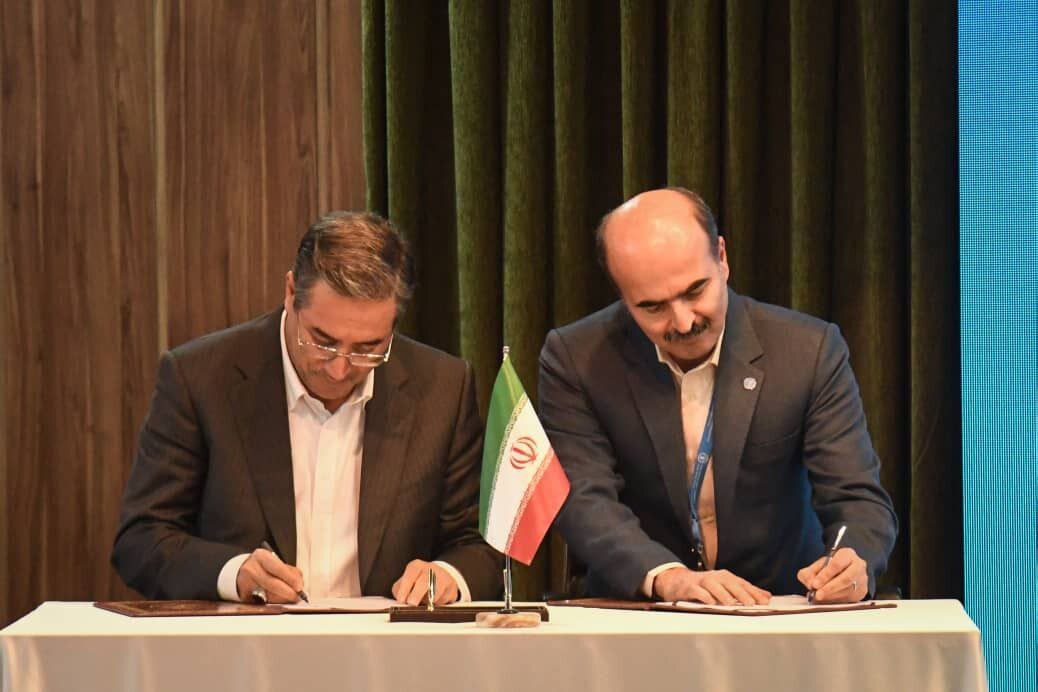Japan funds FAO-UNDP project to help restore Lake Urmia

TEHRAN – With the financial support of the Government of Japan, the Food and Agriculture Organization (FAO) of the United Nations and the United Nations Development Programme (UNDP) have signed a cooperation document, aiming to help revive the drying Lake Urmia in northwestern Iran.
Lake Urmia in West Azarbaijan province started to dry up in the 2000s. The lake was once the largest in West Asia and the sixth-largest salt lake in the world, with a water surface area of 5,000 to 6,000 square kilometers.
The signing ceremony was held during President Masoud Pezeshkian's visit to West Azarbaijan, FAO's website announced in a press release on October 23.
The document was signed by Reza Rahmani, the Secretary of the Urmia Lake Rescue National Committee, and Ali Nazaridoust, Officer-in-Charge (on behalf of the FAO Representative to the Islamic Republic of Iran).
Titled “Enhancing Restoration Activities in Lake Urmia through the Effective Use of Agricultural Water,” the initiative aims to promote sustainable agriculture and support the restoration of one of the country’s most vital ecosystems — Lake Urmia.
The Urmia Lake Basin plays a critical role in ensuring Iran’s food security and agricultural productivity. However, in recent years, the Basin’s water resources have significantly declined due to rising temperatures, changing precipitation patterns, and unsustainable water use.
Recognizing the urgency of these challenges, FAO is implementing this project to promote integrated water resource management and climate-smart agricultural practices across the Basin.
The Urmia Lake component of the project will be jointly implemented by FAO and the Urmia Lake Rescue National Committee (ULRNC). It aims to scale up and operationalize improvements in agricultural water efficiency and productivity, safeguarding livelihoods and reducing pressure on water resources.
Through capacity development, the introduction of efficient irrigation technologies, and the promotion of sustainable farming methods, the project will help farmers and rural communities build resilience to water scarcity while contributing to the restoration of the lake’s ecological balance.
The project represents a strong example of collaboration between the Government of the Islamic Republic of Iran, FAO, UNDP, and the Government of Japan in supporting national efforts toward sustainable agriculture, water management, and environmental conservation.
On December 1, 2024, the Government of Japan and UNDP signed an exchange of notes to launch “The Project for Developing Conservation Systems of Wetlands in Lake Urmia and Other Wetlands, Including their Surrounding Communities.”
The project, which runs from 2024 to 2028, will be implemented in partnership with the Department of Environment and FAO.
Focusing on sustainable agriculture and climate-adapted livelihoods, the initiative seeks to deliver long-term benefits for local communities while preserving the biodiversity of wetlands as critical ecosystems.
Lake Urmia faces significant challenges due to the overconsumption of water resources, magnified by climate change impacts, which have severely impacted its ecosystem.
Agricultural activities in the region are increasingly vulnerable to water shortages, a situation exacerbated by the effects of climate change. Studies indicate that these climatic changes could further disrupt agrifood systems and the lake’s fragile environment in the future.
FAO, with the support of the Government of Japan, identified technical agricultural solutions to increase water efficiency in the agriculture sector at the Lake Urmia basin, which may be efficient in saving the internationally known biosphere reserves.
MT/MG
Leave a Comment